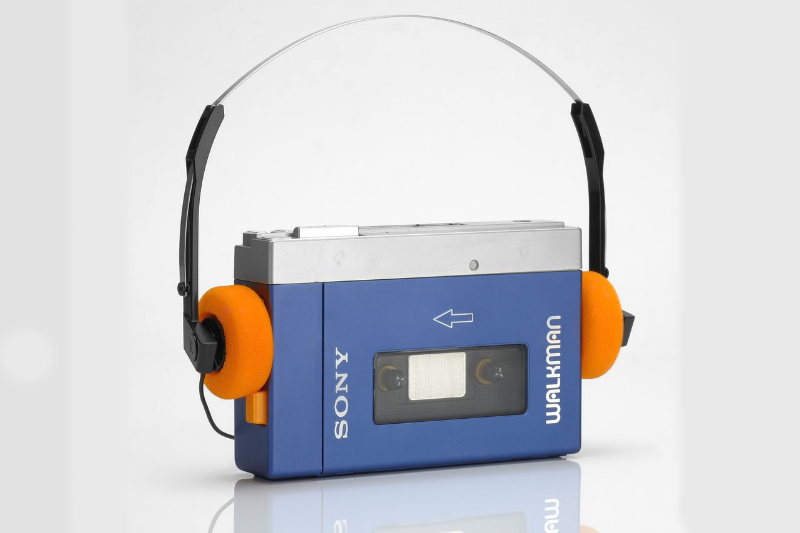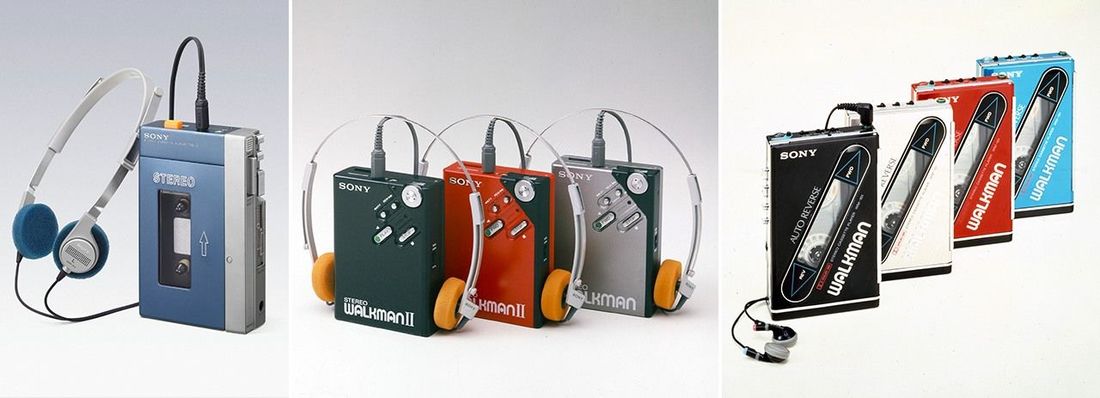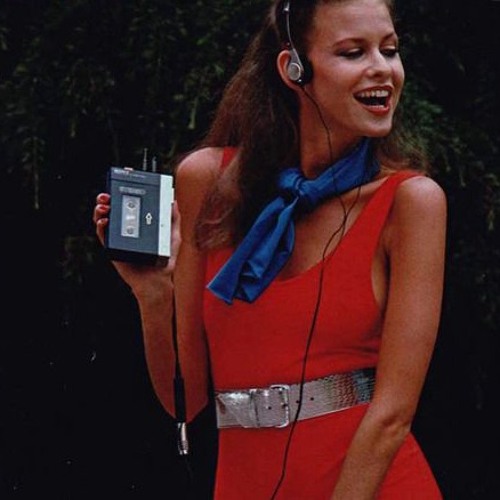The Story of the Grand Dad of iPod's: Sony Walkman 1979

The Era and the Spark: Why the Walkman Was Born
Beginnings: The late 1970s created the perfect storm for Sony's revolutionary Walkman. Japan was experiencing rapid economic growth, with consumers hungry for innovative technology that reflected their modern lifestyle. Urban living was becoming increasingly crowded and noisy, creating a desire for personal escape and privacy. Sony co-founder Masaru Ibuka sparked the idea when he wanted to listen to music during long flights without disturbing others. He asked engineers to modify a portable tape recorder, removing the recording function and adding lightweight headphones. This seemingly simple request addressed a fundamental shift in how people consumed media.

Tech Talk: What Made the Walkman Tick?
Imagine carrying your entire music collection in your pocket—something we take for granted today, but revolutionary in 1979. The Walkman made this dream real through clever engineering that felt almost magical to users. Sony's team crammed a full cassette player into something smaller than a sandwich. They redesigned everything—motors, gears, and circuits—to fit without losing that crisp sound quality your ears craved. Two headphone jacks meant you could share your favorite song with a friend, turning solitary listening into a social moment. Those lightweight headphones were game-changers. No more bulky, uncomfortable gear weighing down your head during long walks or jogs. The foam padding felt like tiny pillows, and somehow they made even scratchy old tapes sound amazing. The real magic? Those big, friendly buttons that worked perfectly whether you were fumbling in the dark or running to catch a bus. The belt clip turned you into a walking DJ, ready to soundtrack any moment with the press of a button. Later models got even smarter—auto-reverse meant never having to stop and flip tapes, while Dolby technology cleaned up that annoying tape hiss. It wasn't just about the technology; it was about giving people the freedom to carry their personal soundtrack everywhere life took them.

Cultural Earthquake: The Walkman Effect
Picture this: you're walking down a busy street in 1980, and suddenly half the people around you have wires dangling from their ears, lost in their own private worlds. The Walkman didn't just change how we listened to music—it rewrote the rules of public space itself. Before the Walkman, your commute soundtrack was whatever played on the radio or the clatter of train wheels. Now? You could escape into your favorite album while stuck in traffic or transform a boring grocery run into your personal music video. Teenagers no longer had to negotiate with parents over the living room stereo—they carried their rebellion in their back pockets. The ripple effects were everywhere. Record stores started selling more diverse music as people could privately explore genres without judgment. Jogging transformed from silent suffering to rhythmic bliss. Even introverts found their superpower—instant invisibility in crowds, wrapped in their chosen melodies. But the Walkman also sparked new anxieties. Parents worried about kids becoming too isolated. Public spaces grew quieter yet somehow more disconnected as people retreated into audio bubbles. The device that promised to bring music everywhere also began building invisible walls between strangers, foreshadowing our smartphone-obsessed world decades later.

Market Domination: Numbers and Hustle
Sony's Walkman didn't just change how we listened to music—it completely rewrote the rules of portable entertainment. When the first Walkman hit shelves in 1979, nobody could have predicted it would sell over 400 million units worldwide and become one of the most iconic consumer products ever made. The numbers tell an incredible story. Sony sold roughly 220 million cassette Walkmans alone, with the original TPS-L2 model flying off shelves despite its hefty $150 price tag (that's about $600 in today's money). But here's the crazy part: Sony was initially scared they'd made a huge mistake. They only manufactured 30,000 units for the first production run, worried that people wouldn't want to listen to music without being able to record. The hustle behind the Walkman was pure Sony magic. Co-founder Akio Morita had this wild idea that people wanted to take their music everywhere. His team thought he was nuts. Who would pay that much for a tape player that couldn't even record? But Morita pushed hard, and Sony's marketing department went all-in with a genius strategy: they gave free Walkmans to young, trendy people in Tokyo's Harajuku district and paid them to walk around looking cool. The strategy worked like gangbusters. Within two years, Sony was selling 40,000 Walkmans every month just in Japan. By 1983, they were moving 30,000 units daily worldwide. The Walkman became so popular that "Walkman" became the generic term for any portable music player, kind of like how we say "Kleenex" for tissues. Sony's dominance wasn't just about the original idea—they kept innovating like crazy. They released over 300 different Walkman models over the years, from waterproof versions for athletes to super-slim models that could fit in your pocket. They introduced the Discman for CDs, then jumped into digital with MP3 players, always staying ahead of the curve. The real genius was understanding that music was becoming personal. Before the Walkman, music was mostly a shared experience—you listened with family, friends, or crowds. Sony realized that people wanted their own private soundtrack to life. They created the first truly personal music device, and the world went absolutely wild for it. Even when competitors tried to copy the formula, Sony stayed on top through sheer determination and smart business moves. They built relationships with record labels, created exclusive content, and made sure their devices were always the coolest option available. The Walkman wasn't just a product—it was a lifestyle statement. Looking back, the Walkman's success came down to perfect timing, relentless innovation, and understanding what people really wanted before they even knew they wanted it. Sony took a massive risk, hustled harder than anyone expected, and created a cultural phenomenon that changed everything about how we experience music.

The Patent Drama and Inventor Stories
The Walkman's origin story is messier than Sony wants you to believe. While everyone credits Sony engineers Nobutoshi Kihara and Akio Morita, the real inventor might actually be Andreas Pavel, a German-Brazilian who filed patents for a "stereobelt" in 1977—two years before Sony's launch. Pavel's legal battle with Sony dragged on for decades. He'd created detailed blueprints for a portable stereo system that looked suspiciously similar to what Sony eventually released. But here's where it gets interesting: Pavel was just one guy with a brilliant idea, while Sony had an entire engineering team working on similar concepts. Sony's internal story credits their engineer Kihara with modifying a existing tape recorder after Morita complained about wanting portable music for his tennis games. They stripped out the recording function, added lightweight headphones, and boom—the Walkman was born. But Pavel's patents suggested he'd beaten them to the punch. The patent drama finally ended in 2003 when Sony quietly settled with Pavel for an undisclosed amount. Industry insiders say it was millions, essentially admitting that Pavel deserved credit for the original concept. It's a classic case of the little inventor versus the corporate giant—except this time, the little guy eventually won.
The Legacy: A World Transformed
Sony's Walkman didn't just play music—it rewrote how we experience the world. Before 1979, music was tied to specific places: your living room, the car, a concert hall. The Walkman broke those chains, letting people carry their soundtrack everywhere. This little device sparked a cultural revolution. Suddenly, commuting became bearable, jogging got its rhythm, and teenagers could escape into their own musical bubble. The Walkman made music deeply personal yet universally accessible. The Walkman paved the way for the iPod and smartphones, making personal audio a daily norm. It shifted culture toward individuality, with its DNA in today’s earbuds. From a 1979 blue box to a global revolution, the Walkman is retro tech royalty.
Nice
ReplyDeleteI also have a memory of walkman. And some collection too
ReplyDeleteNice
ReplyDelete